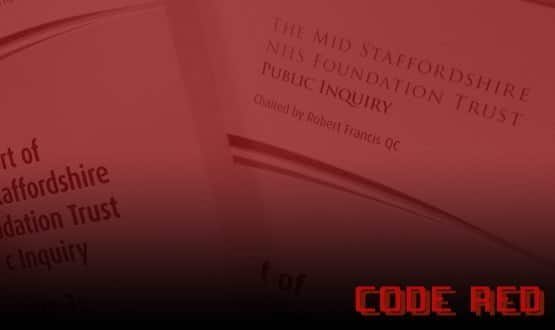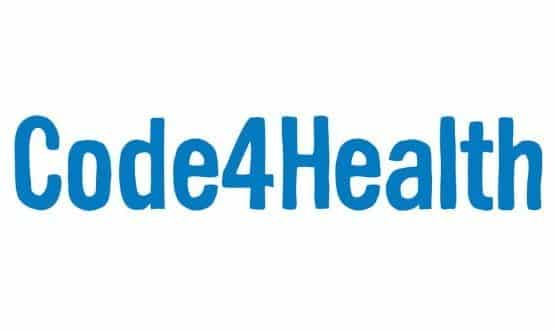Code red
- 13 March 2013

The NHS has been waking up to furious newspaper headlines for weeks now. These started with the publication of Robert Francis’ substantial report into the undoubted failings at Mid Staffordshire NHS Foundation Trust.
But they have been kept going as news has emerged that other hospitals with unexpectedly high death rates are to be reviewed to make sure no further scandals are about to unfurl. Sir Bruce Keogh, the medical director of the NHS, is going to look into no fewer than 14 hospitals that have had higher than expected mortality ratios for the past two years.
In the middle of this, the chief executive of Bolton NHS Foundation Trust “stepped aside”, after it was discovered from external audit that there were considerable discrepancies in the recording of patient deaths.
If that were not enough, the Daily Mail followed up with a headline allegation from a former member of staff at Royal Wolverhampton NHS Trust that she had been hired as a clinical coder and then asked to code deaths in a manner that misrepresented the truth.
Time for action
While we cannot make detailed judgements on these cases before further reviews are published, we would like to echo a statement made by Dr Foster, which carried out the Bolton audit, about the fundamental importance of the accurate recording of patient information, both to the clinical care of patients and the effective running of health services.
Clinicians and health managers are supported by health informatics specialists, who deal with all aspects of data and information needed for healthcare. This includes clinical coding, health IT systems, information for clinical decision-making, electronic health records and much more.
It is essential that these specialists are fully trained, keep up to date in this fast moving environment and work to a code of conduct.
This should address one of the real aspects of concern in the recent spate of “fiddled” figures stories; namely that healthcare workers may not have been working in a professional manner or that, for one reason or another, they may have felt unable to stand up against poor care or poor practice.
Coding challenges over time
One of the major challenges for clinical coding since the introduction, in the 1990s, of the original ‘internal market’ for the purchase and provision of healthcare has been the danger of trusts looking to maximise income by over-coding – using a higher priced procedure rather than the one actually carried out.
However, the inquiries into the Mid Staffs scandal focused on other issues; whether patients were being coded with the correct diagnosis, and whether they were being coded as being expected to die because they were receiving palliative care – even though they were not under the care of a palliative care team.
Similar issues now appear to be cropping up at other trusts. Bolton’s Hospital Standardised Mortality Ratio may have looked better than it should because a larger number of deaths were recorded as being due to septicaemia than might have been expected.
The trust says it is looking at 50 cases where “potential discrepancies” in coding have been uncovered, and that it will work with its local clinical commissioning group, independent experts and Deloitte on coding and other quality issues; before reporting back to the public.
Acting on Francis
Robert Francis’ final report is a substantial three volume investigation with some 290 recommendations. These show that much that needs to change across the NHS.
From an informatics viewpoint there are 29 recommendations under the heading “information”, majoring on working to standards, enhancing the use, analysis and dissemination of healthcare information, and accrediting the sources of that information.
Francis is clear that change needs to start from the top. Under the heading ‘board accountability’ his report says that: “each provider organisation should have a board level member with responsibility for information.”
However, he is also clear that every professional has to take responsibility. Elsewhere in the report, we see the need for a national code of conduct, for a registration system (for healthcare support workers), and for an accreditation scheme for leaders of all disciplines.
The UK Council for Health Informatics Professions (UKCHIP) has developed a set of standards for health informatics specialists, which includes standards for knowledge and skills, professional behaviour and continuous updating.
These are based on national standards as the Health Informatics Careers Framework. We have a voluntary register that specialists can apply to join, which is published on our website and all registrants are required to agree to a code of conduct and to ensure that they continue to develop their knowledge and skills with additional learning and training.
Getting on top of bad news
While we do not know exactly what the issues were at the Bolton or Wolverhampton trusts (and the management of the latter has reacted furiously to the Daily Mail’s claims), we maintain that informatics is a crucial element of all health care and must be done well, or patients and the service will suffer.
This can only happen if all involved have the appropriate up-to-date knowledge and capability, so that mistakes are not made. All those handling complex sensitive health information should work to a professional code of conduct, so they are committed to not allowing data to be misrepresented.
The UK Council for Health Informatics Professions is the voluntary registration body for health informatics professionals, established to promote professionalism in health informatics and the certification of those who work in the profession.
Registration and certification is open to anyone currently working in health informatics, whether for the NHS, for the private health care sector, or for commercial suppliers to the health care sector. The majority of registrants are employed in the United Kingdom, although we welcome individuals from elsewhere.
UKCHIP’s vision is: That health informatics is recognised as a valued profession in both the public and private health care sectors throughout the United Kingdom. That all persons in the UK who spend a substantial proportion of their role or time working in health informatics will be registered with UKCHIP and thereby certified as professionals who meet defined standards of professional conduct and competence.
Contact Mik Horswell, chairman, marketing@ukchip.net or 07887 622966




